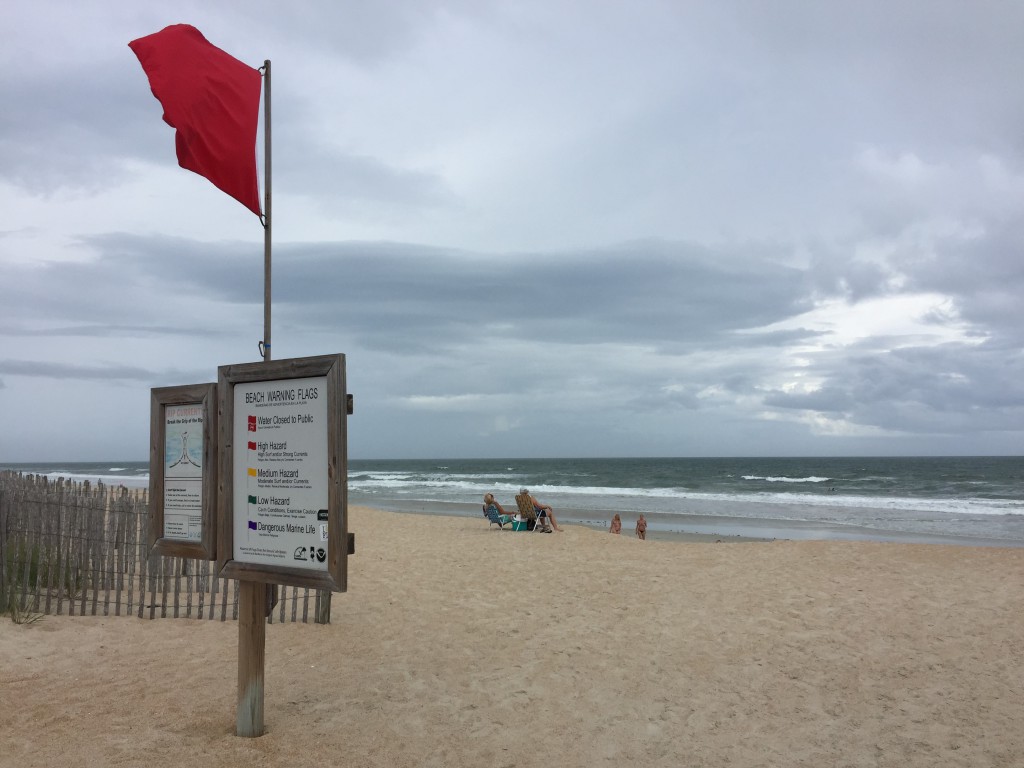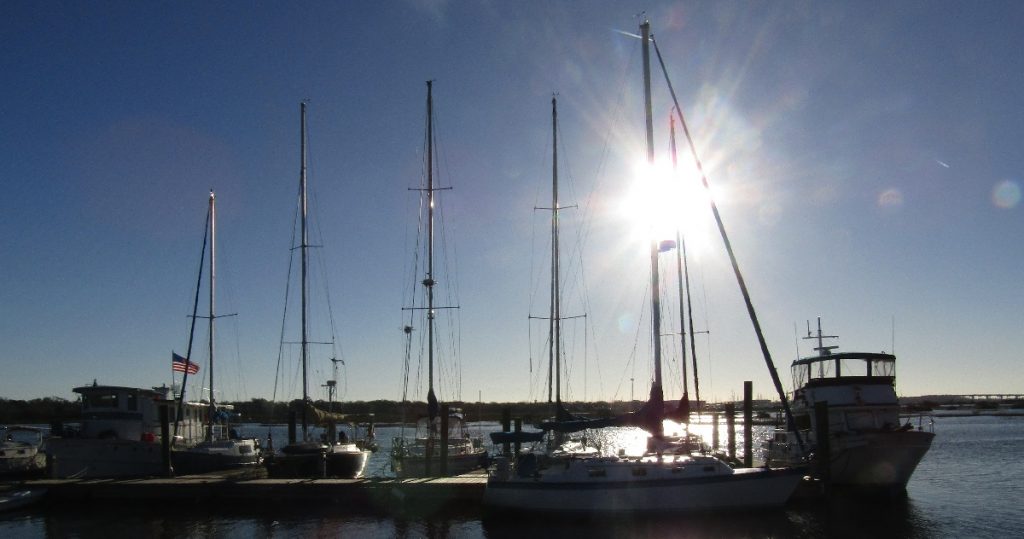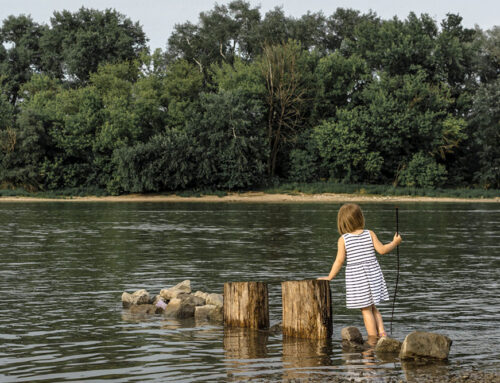Updated July 31, 2020
Hurricane season is from June 1st through November 30th.
During this time it is important to stay informed and have the most up-to-date information. That’s why we’ve created this St. Augustine Visitors and Locals Hurricane Guide. Many residents may know where to obtain the important information that will keep them safe. However, some residents and many visitors may not. Knowledge is power. Arming yourself with the proper safety measures can mean the difference between a safe hurricane season and one gone awry.
Luckily, the officials of St. Johns County and the City of St. Augustine have precautions and plans in place for any and every kind of weather condition. Linda Stoughton, the former director of St. Johns County Emergency Management, says that the county does everything possible to offer as much assistance to visitors as it does to residents during weather emergencies.

Flags are raised on the beach to warn for beach safety conditions.
Hurricane Preparedness Resources
Your smartphone can be the best tool for hurricane preparedness. Local agencies and governments post updates on social media from St. Johns County Emergency Management as they become available. You can also see the latest forecasts, watches, and warnings from the National Weather Service in Jacksonville and the National Hurricane Center.
When storms arise, visitors are encouraged to monitor TVs, radios and websites for the timeliest information. Don’t forget, in the events of a hurricane, it’s important to know which zone you’re in.
- Local news channel: News4JAX
- Local radio station: 103.9 FM WSOS
- Evacuation Zone Map: Zone Map
- My Evacuation Zone Locator: Zone Tool
Stay connected through social platforms.
City of St. Augustine
- Facebook: @CityStAug
- Twitter: @CityStAug
St. Augustine Beach Police Department
- Facebook: @sabeachpolice
- Twitter: @sabpd
St. Johns County Emergency Management
- Facebook: @StJohnsEOC
- Twitter: @StJohnsEOC
St. Augustine Police Department
St. Johns Sheriff’s Office
- Facebook: @StJohnsSheriffOffice
- Twitter: @SJSOPIO
Safety tips
As far as safety is concerned, St. Johns County Emergency Management says the main thing to do is stay alert and have situational awareness. Here are some tips they recommend:
- Research ahead of time to see if you are staying in an evacuation zone.
- Be prepared to leave if you’re told to by officials.
- Understand hazards come with extreme weather.
- Understand that different bodies of water have different hazards such as rip currents, extreme high tides, undertow, flooding, tornadoes, high winds.
- Follow directions of local officials and try to move vehicles outside of flooded areas.
If you’re at a campground or beach area…
While some visitors stay in hotels around town, some choose to go camping or dock their boats at a marina. “We have communication with marinas and make sure they have information to give to people who came in by boat,” Stoughton said. “We also have a large campground including Anastasia State Park and several beaches. Anastasia has a complete disaster plan in place. It is one of the most popular campgrounds along the state.”
Mark Giblin, park manager of Anastasia State Park, says visitors should use caution to stay safe whether they are camping or just swimming at the beach. “When the park goes under a tropical storm or hurricane watch warning, we evacuate the campground the moment the warning or watch goes into effect,” he said. “The biggest tip I would give is to not wait until the last minute. I see a lot of people think the storm’s not going to come or not take threats as serious and find themselves in a situation.”
As far as swimming is concerned, Giblin says to watch the beach warning flags. “Pay attention to those flags because sometimes a rip current or undertow are not necessarily present to the eye.”
If you’re docked at the marina…
Being on the coast, many people take the opportunity to sail up instead of drive. Sam Adukiewicz, harbor master of St. Augustine Municipal Marina, says it’s better to be safe than sorry.
“Find a safe place until the storm is over. If there is a bad storm, find a place for the vessel and stay ashore. Boats can be replaced, but lives cannot.”
If you do find yourself in the marina during extreme weather conditions, be sure to stay informed. “We do our best to communicate with everyone to keep their eyes out on the storm,” he said. “We can’t make people leave, but we ask people to secure boats. We give them hurricane preparedness checklists. We watch the storm.”
If you are in need of a hurricane preparedness checklist for your boat, go to boatus.com.









